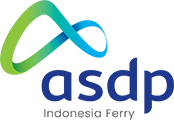

ASDP was established as the provider of river and lake transportation and ferry transportation by Proyek ASDP and Ferry (PASDF).
Based on the Amendment of the Company Articles of Association, article 3, and Notarial Act No. 24 dated August 8, 2008 prepared and presented before Johny Dwikora Aron, SH Notary in Jakarta, the purposes and objectives of the Company is to conduct business in port service, river, lake, and sea transportation service , as well as to optimize the resources of the Company to generate high-quality and competitive goods and/or services in order to gain profit. In actualizing the purposes and objectives, the Company conduct business activities as follows:
 Unilever is a global Fast-Moving Consumer Goods company in the UK and Ireland. We are already on target to achieve our huge ambition to double the size of our business globally whilst reducing our environmental impact. We are growing our business and also doing what is right for our consumers, community and environment. We are developing brands for people’s lives today and for the changing environment tomorrow - making sustainable living commonplace.
Unilever is a global Fast-Moving Consumer Goods company in the UK and Ireland. We are already on target to achieve our huge ambition to double the size of our business globally whilst reducing our environmental impact. We are growing our business and also doing what is right for our consumers, community and environment. We are developing brands for people’s lives today and for the changing environment tomorrow - making sustainable living commonplace.

 ASDP was established as the provider of river and lake transportation and ferry transportation by Proyek ASDP and Ferry (PASDF).
ASDP was established as the provider of river and lake transportation and ferry transportation by Proyek ASDP and Ferry (PASDF).